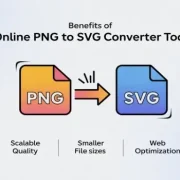Running a small business is both exciting and challenging. While you focus on growing your brand and serving customers, protecting your venture from unexpected risks is crucial. This is where business insurance for small business comes into play. Having the right insurance plan can safeguard your assets, provide financial security, and give you peace of mind. In this guide, we’ll explore the best insurance plans available for small businesses and how to choose the right coverage for your unique needs.
Why Business Insurance for Small Business Matters
Small businesses face a variety of risks daily—property damage, liability claims, employee injuries, and even lawsuits. Without proper insurance, these risks can lead to costly financial losses or even force a business to shut down.
Business insurance for small business provides a safety net by transferring risk to an insurance provider. It covers damages and legal expenses, helping you focus on running your business without fear of catastrophic losses.
Key Types of Business Insurance for Small Business
There is no one-size-fits-all insurance policy for small businesses. The best plans typically combine several types of coverage based on the nature of your business, industry, and risk factors. Here are some common and essential types of business insurance for small business owners to consider:
1. General Liability Insurance
General liability insurance is often considered the foundation of business insurance. It protects your business if you are legally liable for injury or property damage caused to others. For example, if a customer slips and falls in your store, this insurance covers medical costs and legal fees.
This plan is essential for almost every small business as accidents can happen anywhere and anytime.
2. Property Insurance
Property insurance covers damage to your physical assets such as buildings, equipment, inventory, and furniture. It protects against risks like fire, theft, vandalism, and natural disasters.
If you own or lease a business location, property insurance is critical to protect your investment and keep your operations running smoothly.
3. Business Interruption Insurance
Also known as business income insurance, this coverage helps replace lost income if your business must close temporarily due to a covered event like fire or severe weather. It can help cover ongoing expenses such as rent, payroll, and utilities during downtime.
Business interruption insurance is especially valuable for small businesses without large cash reserves.
4. Professional Liability Insurance
Also called errors and omissions insurance, professional liability insurance protects your business against claims of negligence, mistakes, or failure to perform professional duties. This coverage is important for service-based businesses, consultants, and freelancers.
It helps cover legal defense costs and settlements if a client alleges your service caused them financial harm.
5. Workers’ Compensation Insurance
If you have employees, workers’ compensation insurance is often required by law. It covers medical expenses and lost wages for employees who are injured or become ill on the job. It also protects your business from lawsuits related to workplace injuries.
This insurance is a must-have to protect both your workforce and your business.
6. Commercial Auto Insurance
If your business uses vehicles for operations, commercial auto insurance covers damages or injuries resulting from business vehicle accidents. Personal auto policies typically don’t cover vehicles used for business purposes, so this is vital if you drive company cars or trucks.
7. Cyber Liability Insurance
In today’s digital age, cyber liability insurance protects your business from losses due to data breaches, hacking, and cyberattacks. It covers costs like notification expenses, credit monitoring for affected customers, legal fees, and fines.
For businesses that store sensitive customer data or rely heavily on technology, this insurance is increasingly important.
How to Choose the Best Business Insurance for Small Business
With so many insurance options, selecting the right plans can feel overwhelming. Here are some tips to help you make an informed decision:
Assess Your Risks
Start by evaluating the risks your business faces. Consider your industry, location, size, and operations. For example, a retail store needs strong general liability and property coverage, while a consulting firm might prioritize professional liability insurance.
Consult with an Insurance Agent
An experienced insurance agent or broker can guide you through the different types of business insurance for small business and help tailor a package that fits your specific needs and budget.
Compare Quotes
Obtain quotes from multiple insurers to compare coverage options, limits, deductibles, and premiums. Remember, the cheapest policy isn’t always the best. Look for a balance between cost and comprehensive protection.
Review Policy Details Carefully
Understand what is covered, excluded, and any policy limits. Ask questions about claims processes, customer service, and renewal terms.
Consider Bundled Policies
Many insurers offer bundled packages, such as a Business Owner’s Policy (BOP), which combines general liability and property insurance at a discounted rate. Bundling can simplify your insurance management and save money.
Benefits of Having the Right Business Insurance
Choosing the right business insurance for small business offers many advantages:
- Financial Protection: Insurance helps cover unexpected costs, preventing devastating financial losses.
- Peace of Mind: Knowing your business is protected allows you to focus on growth and daily operations.
- Legal Compliance: Certain coverages, like workers’ compensation, are legally required to operate.
- Client Confidence: Insurance can increase your credibility and attract clients who prefer to work with insured businesses.
- Business Continuity: Coverage like business interruption insurance helps you recover faster from setbacks.
Common Mistakes to Avoid
- Underinsuring: Buying less coverage than needed can leave your business vulnerable.
- Ignoring Policy Exclusions: Always read and understand what your policy doesn’t cover.
- Delaying Insurance Purchase: Don’t wait until after a loss to get insurance. Risks are always present.
- Not Updating Policies: Review your insurance annually and update it as your business grows or changes.
Conclusion
Finding the best business insurance for small business is a crucial step to protect your investment, employees, and future. Understanding the various types of insurance and tailoring coverage to your business needs helps ensure comprehensive protection without unnecessary costs.
Whether you’re starting a new venture or reviewing your current insurance, work with trusted professionals to design a plan that offers peace of mind and financial security. Your business deserves the right insurance coverage to thrive confidently in today’s competitive market.
Also Read: Top Reasons to Choose Commercial Package Insurance

















Comments